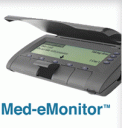Cognitive Design of Personal Med Dispensers
Friday, November 28th, 2008Resigning a pill bottle to meet specific cognitive needs doubles medication compliance.
Not taking meds properly is a major issue in healthcare. Approximately 125,000 people die from improperly taking meds every year in the US. As much as $100B-$300B is wasted in hospital visits, tests and lost productivity associated with lack of compliance with medication regiments.
 Studies show that we take our meds according to the doctor’s orders only 40-50% of the time. The problem is we forget (or fail to remember to remember to take our meds – a prospective memory need), are boggled by the complexity of what to do (imagine taking 10-15 different meds per day) and have self esteem issues (taking meds makes us appear weak or a burden). In short, prescription pill bottles we get from the pharmacy don’t meet the complex cognitive needs (prospective memory, multi-pill complexity, self esteem) associated with personal medication management.
Studies show that we take our meds according to the doctor’s orders only 40-50% of the time. The problem is we forget (or fail to remember to remember to take our meds – a prospective memory need), are boggled by the complexity of what to do (imagine taking 10-15 different meds per day) and have self esteem issues (taking meds makes us appear weak or a burden). In short, prescription pill bottles we get from the pharmacy don’t meet the complex cognitive needs (prospective memory, multi-pill complexity, self esteem) associated with personal medication management.
 Fortunately a number of smart pill boxes have been designed to help us solve this problem. According to an excellent article on Medication Compliance by Allan Naditz in the November issue on Telemedicine and e-Health, these devices can take compliance from the 40-50% level to the 90-95% level.
Fortunately a number of smart pill boxes have been designed to help us solve this problem. According to an excellent article on Medication Compliance by Allan Naditz in the November issue on Telemedicine and e-Health, these devices can take compliance from the 40-50% level to the 90-95% level.
 He discusses eight smart pill boxes ranging from simple reminder systems to personal med dispensers that provide multiple reminders and contact a service provider automatically if you don’t take your meds. A You Tube video outlining the problem and pitching the MD2 system, a top of the line model, can be found here.
He discusses eight smart pill boxes ranging from simple reminder systems to personal med dispensers that provide multiple reminders and contact a service provider automatically if you don’t take your meds. A You Tube video outlining the problem and pitching the MD2 system, a top of the line model, can be found here.